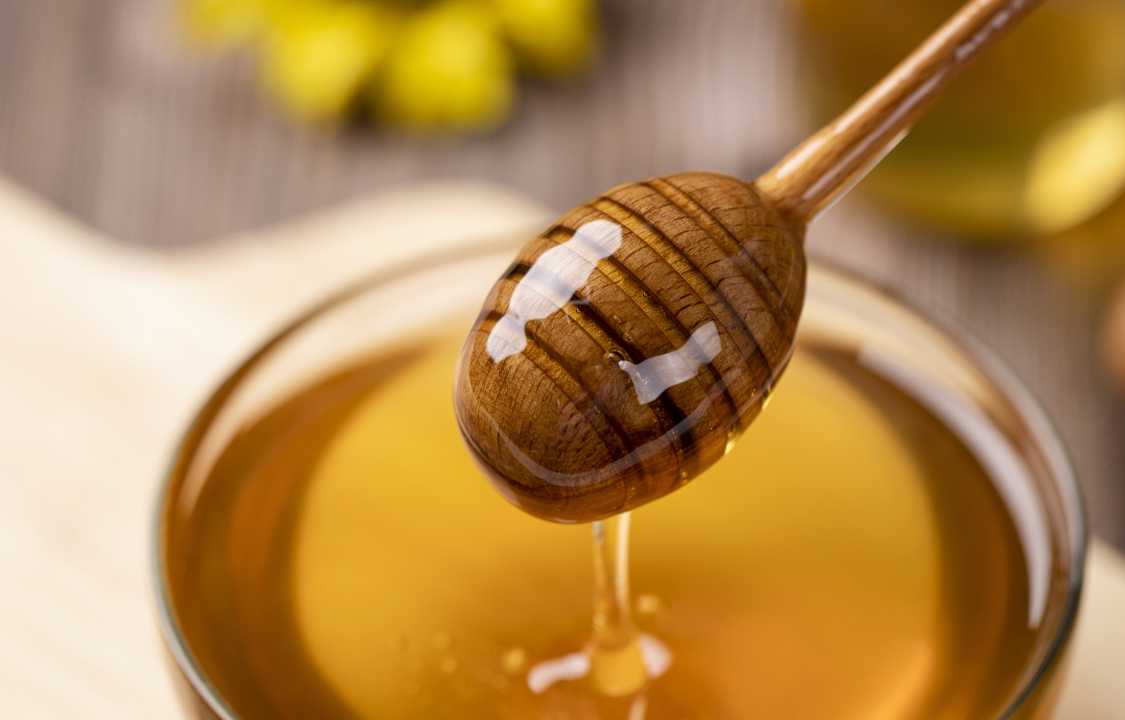Health Benefits, Health Care
Health Benefits of Honey
Learn about the health benefits of honey, how to select the best kind, and creative ways to add honey to meals, drinks, and snacks.
Honey, a luscious natural sweetener derived from the nectar of flowers through the intricate process of bee alchemy, is not only a delightful addition to culinary creations but also harbors a plethora of potential health advantages. In a world where the pursuit of wellness is paramount, delving into the diverse benefits of honey offers a tantalizing exploration of its nutritional composition and therapeutic potential.
Modern research has unveiled a host of intriguing facets concerning honey’s impact on human health. Beyond its delectable sweetness, honey stands as a potential guardian against metabolic syndrome (MetS), a cluster of risk factors that often pave the way for heart disease and diabetes. MetS, diagnosed upon meeting at least three of five criteria including waist circumference, blood pressure, triglyceride levels, HDL cholesterol, and blood sugar, finds its match in honey’s multifaceted attributes. The golden elixir’s low glycemic index confers it the ability to regulate blood sugar without inducing the abrupt spikes seen with refined sugars. This delicate modulation is further augmented by honey’s role in enhancing insulin sensitivity. In fact, studies have illuminated that moderate consumption of honey can stave off weight gain, thereby becoming a potential ally in MetS management. The lipid profile also benefits from honey’s intervention, as it reduces levels of LDL cholesterol and triglycerides while simultaneously boosting HDL cholesterol – a harmony that safeguards against the development of atherosclerosis, a precursor to heart disease.
Delving into the nectar of honey’s composition reveals an astonishing amalgamation of over 180 substances, encompassing natural sugars, vitamins, minerals, and phytochemicals. Amidst this complex array, the presence of antioxidants and anti-inflammatory compounds emerges as honey’s armor against atherosclerosis, a process marked by the deposition of fatty substances within arteries. As a resilient protector, honey holds the potential to thwart the gradual hardening of arteries, thereby mitigating the risk of coronary artery disease and its harbingers, such as angina and heart attacks.
The uncanny potential of honey to alleviate antimicrobial resistance presents an enthralling narrative in the realm of medical discoveries. With concerns mounting over the overuse of antibiotics, honey emerges as a promising contender in the battle against upper respiratory tract infections (URIs) that frequently fall prey to antimicrobial resistance. In a comprehensive review that unfolded in 2020, honey’s prowess in ameliorating cough severity and frequency surpassed that of over-the-counter medicines and antibiotics. Honey’s unique composition seems to resonate with the fight against URIs, propelling researchers to explore its constituent antimicrobial compounds as the building blocks for novel antibiotics. In a world where resistance against conventional treatments is escalating, honey’s role as an affordable and potentially effective alternative gains momentum.
As we journey deeper into the microcosm of the human body, honey unveils yet another facet of its power – its ability to nurture a healthy gut. Research published in 2017 has illuminated honey’s prebiotic properties, effectively nourishing beneficial gut bacteria. These probiotic champions, such as Lactobacilli, play an indispensable role in metabolizing food and facilitating nutrient absorption. By fostering a flourishing gut microbiome, honey indirectly contributes to a fortified immune system and amplified mental well-being, forging an unspoken connection between our gut and overall health.
Turning our gaze toward honey’s nutritional profile, a tablespoon of this liquid gold encapsulates an array of nutrients. With a caloric content of 63.8, honey reigns as a natural source of energy, devoid of fats and sodium. Its carbohydrate composition, including fiber and negligible added sugars, contributes to its favorable glycemic index, lending itself as a viable option for individuals mindful of their sugar intake. The presence of 31 minerals, including phosphorus, calcium, potassium, and magnesium, speaks to the complexity of honey’s nutritional makeup. While it might not supply a substantial portion of these minerals, it offers a tantalizing glimpse into the intricate interplay of nutrients.
However, as with any natural marvel, honey presents considerations that warrant our attention. Its composition is not static, varying based on floral sources and beekeeping practices. Hence, it is imperative to engage with beekeepers and scrutinize ingredient labels to ensure purity. Dark honey, like buckwheat honey, harbors potent antioxidant activity, offering a health advantage over light varieties. Notably, honey should never grace the lips of children under 12 months due to the risk of Clostridium botulinum spores, which can thrive in an infant’s immature digestive system and trigger severe illness.
When it comes to savoring honey’s golden goodness, the possibilities are as endless as the imagination. Beyond the classic spoonful, honey can be seamlessly integrated into diverse culinary creations. Whether it’s infused into tea, swirled into smoothies, or incorporated into vinaigrette dressings, honey’s versatility shines through. Drizzling honey over a spectrum of edibles – from oatmeal and pancakes to chia seeds and avocado pudding – enhances their nutritional profile while indulging the palate. Aspiring chefs can craft energy-packed treats by blending honey with nut or seed butter, oats, dried fruits, spices, and dark chocolate, or experiment with honey-glazed delights like kale chips, carrots, and walnuts. Not confined to desserts, honey extends its touch to the realm of baked goods, wherein it can replace sugar and even add a touch of sweetness to cocktails.
In summation, honey’s enchanting allure transcends its saccharine sweetness, delving into a realm where its potential to foster health and well-being becomes evident. Its multifaceted role in mitigating metabolic syndrome, guarding against heart disease, nurturing a balanced gut, and even challenging antibiotic resistance showcases its capacity to serve as a true elixir of vitality. As we uncover the layers of honey’s intricate composition, a profound respect for the bees’ labor and nature’s bounty takes root. In a world where health is a prized treasure, honey’s resplendent benefits continue to beckon, inviting us to indulge in its multifarious charms as we tread the path of holistic well-being.

